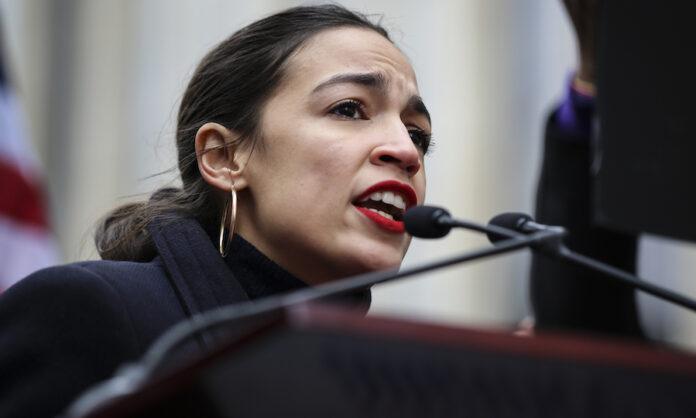The Green New Deal isn’t perfect, but it’s the best we’ve got
The Green New Deal is not so new. Its roots stem from Franklin D. Roosevelt’s ambitious plan — the New Deal — to yank America out of the Great Depression. Both deals take unorthodox approaches to fix dire problems. But while the Green New Deal matches Roosevelt’s plan in ambition, will it match in success as well?
The Good
There’s no question that the Green New Deal offers the kind of big, progressive ideas we should be discussing in order to tackle large problems like climate change. The plan proposes to transform the United States into a 100 percent renewable, zero-emission, clean-energy nation by 2030 through investments in electric cars and high-speed rail systems and implementing the social cost of carbon. Wall Street is even showing willingness to fund the plan.
The Green New Deal does not dictate how to implement these policies, and while this might seem like a weakness, it can actually be a strength, according to Steve Cohen of the Columbia University Earth Institute. Like Roosevelt’s New Deal, the lack of specificity allows for more improvisation to specific, unexpected problems and more flexibility than a cemented plan would. After all, this is how the Social Security Act was signed into law by Roosevelt during the Great Depression.
The Green New Deal also sets a political standard for environmental talking points, with presidential candidates already voicing their opinions on where they stand with the plan. The resolution encourages voters to pressure Congress members to support it, shifting the conversation from “Is climate change real?” to “Let’s start doing something about it.” This dialogue is a powerful tool for environmentalists to bump climate change up the list of priorities.
The Bad
The Green New Deal mixes environmental solutions with unrelated issues, such as income inequality, universal health care, monopoly prevention and federal job compensation. This could prove to be dangerous for Democrats, as it might be labeled as a ploy to push a left-wing agenda under the guise of addressing climate change.
Republicans have already jumped at the chance to attack the resolution — including how incredibly expensive it will be — making the Green New Deal a partisan issue when it shouldn’t be one.
Experts such as Jesse Jenkins, a postdoctoral environmental fellow at Harvard, have also claimed that the goal of becoming a 100 percent renewable, zero-emission, clean-energy nation in 10 years is not feasible — undermining the potential of actually reaching such a daunting goal.
The Ugly
While rushing to release more information about the resolution, a “Frequently Asked Questions” draft summary was posted on Representative Alexandria Ocasio-Cortez’s website, who introduced the proposal along with Senator Ed Markey. This document has been targeted by Republicans and others for its vague language and questionable remarks, such as “economic security to all who are […] unwilling to work” and “fully [getting] rid of, for example, emissions from cows or air travel.”
The fact that the government has reached the point of rushing ill-prepared documents speaks volumes to how little we prioritize the seriousness of climate change in politics. The high school methods of writing papers last minute and sacrificing quality for a finished product should not be how the government addresses life-or-death issues.
But the ugly truth is that the Green New Deal is the only option we have. When time is a factor affecting the intensity of the issue, we don’t have the luxury to throw aside this idea and wait for a “better” idea that might never come, especially when the opposition is still debating whether we should do anything at all.
Any idea is better than no idea.
Written by: Daniel Oropeza — daoropeza@ucdavis.edu
Disclaimer: The views and opinions expressed by individual columnists belong to the columnists alone and do not necessarily indicate the views and opinions held by The California Aggie.




